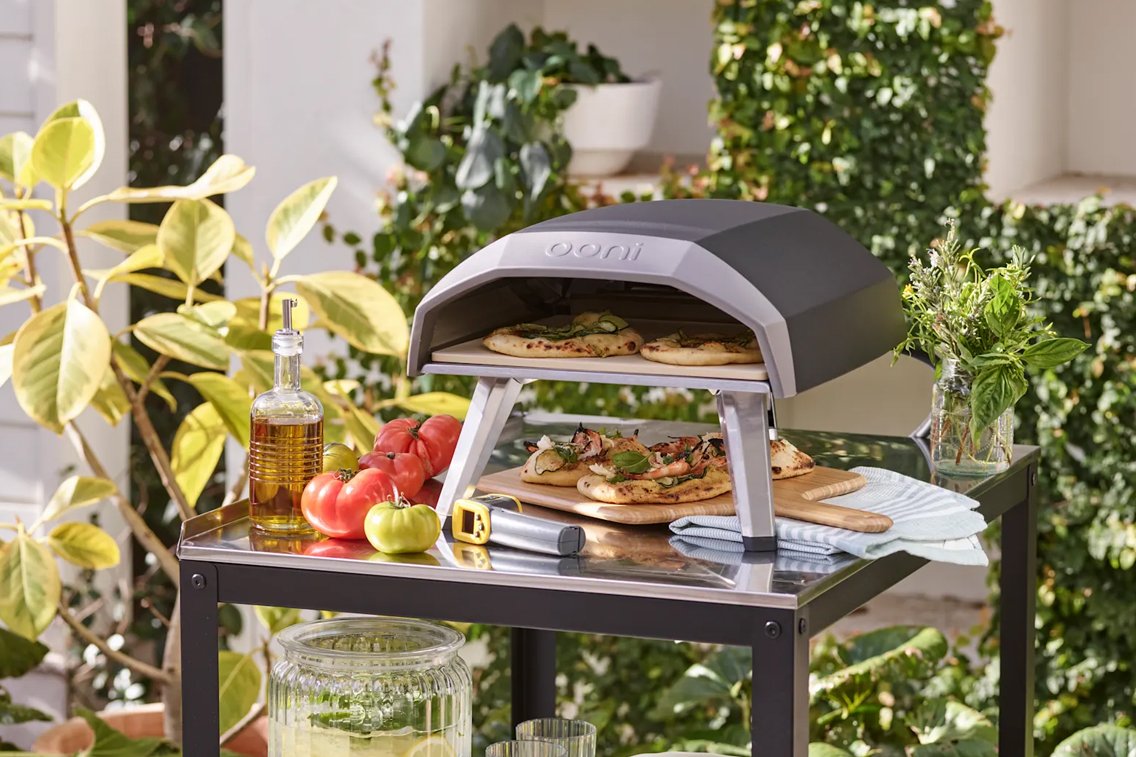
When it comes to outdoor pizza ovens, few brands have made as much noise as Ooni. Known for its sleek design, portability, and bold marketing promises, Ooni promises that anyone can bake authentic, high-quality wood-fired pizza at home in just 60 seconds. But do these ovens really live up to the hype, or are they just another overpriced backyard gadget?
I took a closer look at customer experiences and product performance, comparing Ooni’s claims with actual practice. Here’s the breakdown.
The brand positions itself as the ultimate solution for home pizza makers. According to Ooni, its ovens can:
• Reach up to 500°C in just 15–20 minutes.
• Bake a pizza in just 60 seconds.
• Deliver restaurant-quality wood-fired flavor.
• Portable and easy to use, even for beginners.
• Offer flexibility in fuel choice – with models that can run on wood, charcoal, gas, or even multiple fuels.
On paper, these features sound like every pizza lover’s dream. But let’s compare them to the actual cooking results.
Yes, Ooni ovens reach high temperatures—but not all users report consistent results. While models like the Ooni Karu 16 and the Ooni Koda 16 deliver on their promise of heat, smaller models like the Ooni Fyra can struggle to maintain a consistent flame, especially when using wood pellets.
• Expectation: 950°F in 20 minutes.
• Reality: Many users confirm that they reach 800–900°F. However, maintaining the stone at this temperature requires constant attention when refilling and turning the fuel.
👉 Conclusion: Ooni doesn’t exaggerate when it comes to heat potential, but temperature stability takes practice.
Ooni promises pizza in just 60 seconds. While that’s technically true, it doesn’t always guarantee perfection.
• At maximum heat, a pizza is actually cooked in less than a minute. However, many users find that the bottom burns while the top cools. This requires frequent flipping and testing.
• With thicker crust or excessive toppings, it often takes closer to 90–120 seconds for the pizza to cook properly.
👉 Conclusion: Yes, you can make lightning-fast pizzas with Ooni – but only with a little practice and a light topping. Beginners might be disappointed the first time.
This is where Ooni shines. Wood and charcoal ovens produce the distinctive smoky aroma that a conventional household oven simply can’t. Gas-fired models offer convenience, but lack the typical flavor.
• Wood/Ooni Karu: Best for authentic Neapolitan flavor.
• Gas/Ooni Koda: Excellent consistency, less effort, but the flavor is a bit blander.
👉 Conclusion: The taste is one of Ooni’s biggest plus points, especially for those who are willing to work with wood or charcoal.
Marketing often suggests that Ooni is beginner-friendly. However, there is actually a learning curve.
• Using wood or pellets requires frequent monitoring, adding fuel, and turning the pizza every 20 seconds.
• Gas models are much simpler—light, preheat, and bake.
• Beginners often burn a few pizzas before they find the right timing.
👉 Conclusion: “Easy to use” is subjective. Gas users agree. Wood users say it’s more of an art form.
Here, Ooni’s promise and reality match almost perfectly.
• Most models are lightweight (9–18 kg), foldable, and travel-friendly.
• Easy to set up on the patio, balcony, or even at a picnic.
• The elegant, Scandinavian-inspired design gives it a high-quality feel.
👉 Verdict: 100% accurate – Ooni ovens are truly portable and stylish.
Ooni doesn’t emphasize this in its advertising, but it’s worth mentioning:
• Gas ovens = minimal mess, quick wipe-down.
• Wood/pellet ovens = ash buildup, frequent cleaning, and higher maintenance.
• Pizza stones must be brushed after each use.
👉 Conclusion: Still doable, but not as “effortless” as the marketing suggests.
• Heat: Delivers what it promises, but requires control.
• Cooking time: 60-second pizzas are possible, but not guaranteed for beginners.
• Taste: Excellent, especially with wood or charcoal.
• Ease of use: Depends on the model; gas is easy, wood is convenient.
• Design & portability: Exactly as promised.